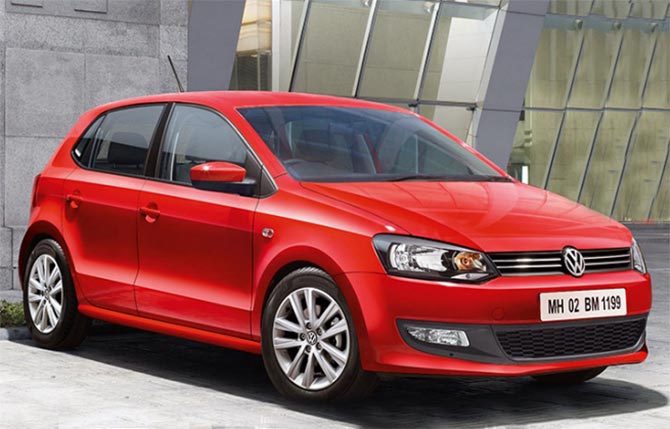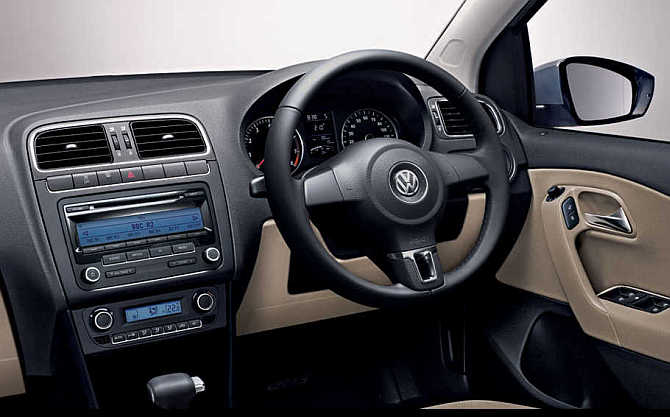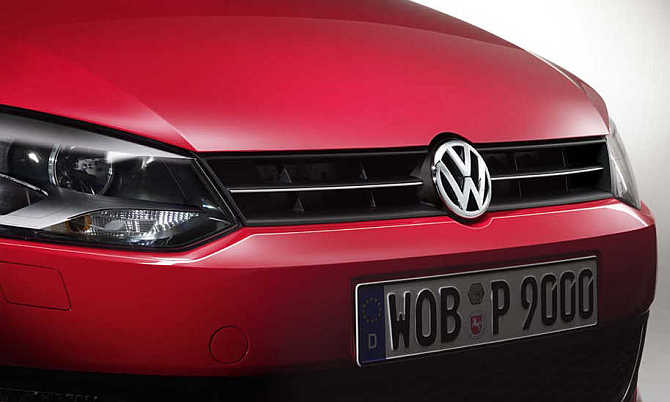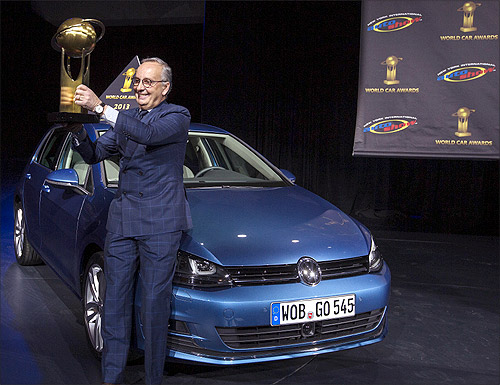Photographs: Courtesy, Volkswagen Aditi Shah in New Delhi
Volkswagen AG will increase the amount of locally-made parts in the cars it sells in India to cut costs and lift falling sales in a competitive market dominated by cheap compacts.
Five years after entering India, VW has captured just 2.1 per cent of the market because its cars are seen as relatively expensive and it lacks a diverse mass-market product range.
VW is the market leader in China, yet it has struggled in India against competition from compact carmakers like Hyundai Motor Co and Maruti Suzuki Ltd, and mid-market offerings from carmakers like Toyota Motor Corp.
The problem has been compounded by India's worst economic slowdown in a quarter of a century that has depressed passenger car sales for the two consecutive years that ended on March 31.
This has forced the German carmaker to step up sourcing of components from India to cut costs and broaden its appeal.
Please . . .
Volkswagen goes local in India to cut costs, lift sales
Photographs: Source, volkswagen.co.uk
"Indianisation is certainly a key word we learned about," said Michael Mayer, director, passenger cars at Volkswagen India Pvt Ltd.
"We need to make the cars more adapted to the taste of the Indian customers."
Mayer said VW may not have had localisation in mind when it entered India in 2010, but it is now a key part of its growth strategy, marking a shift in how it plans to boost sales in a market with vast potential.
It plans to raise the local content level in cars to 90 per cent from about 65-70 per cent now by building engines and gearboxes locally.
While it has not decided when it would start building these, Mahesh Kodumudi, president and managing director of Volkswagen India, said it would be a necessary step to have a "sustainable business model".
Sales of VW's passenger cars in India fell 24 per cent to 52,525 vehicles for the fiscal year that ended on March 31, ranking it sixth among 14 carmakers in the country by market share, according to industry figures.
Please . . .
Volkswagen goes local in India to cut costs, lift sales
Photographs: Source, volkswagen.co.uk
Despite the downturn, India has vast potential. Car ownership is low at just 13 per 1,000 people compared with 34 in China, 165 in Brazil and 191 in Mexico, government data shows.
By 2018, India is expected to become the world's third-largest car market by unit sales, overtaking Japan, Brazil and Germany, according to IHS Automotive.
Some analysts say stepping up localisation and lowering costs may not be enough to revive sales -- for that VW would need to launch new products and strengthen its sales network.
VW plans to invest $250 million in India over the next five to six years to increase local content sourcing and manufacturing and introduce new models, Kodumudi said on Tuesday at the launch of its revamped Polo hatchback.
Please . . .
Volkswagen goes local in India to cut costs, lift sales
Image: Volkswagen design chief Walter de Silva holds a trophy after the Volkswagen Golf was named 2013 World Car of the Year during the New York International Auto Show in New York.Photographs: Lucas Jackson/Reuters
Europe's biggest carmaker will look at launching new cars in India in two to three years, said Mayer, adding that it needs to be in the compact sports utility vehicle and compact sedan segments to position the brand correctly.
"The entry-level car market is very price sensitive. . .and it is very hard to compete," said Mayer, adding that the company will not seek to compete with hatchbacks like Maruti's Alto, in line with its premium image globally.






article